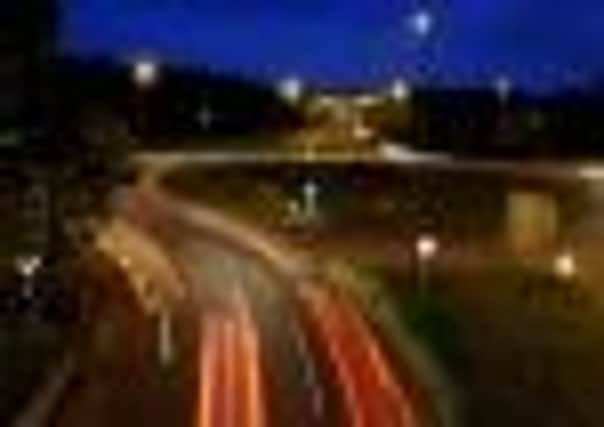Concerns turn-off will cause increased crime fear


Opponents of plans to turn off street lights in rural and residential streets overnight in some parts of Yorkshire argue keeping them on helps prevent crime, can help to stop road accidents and if areas are not well lit they can become no-go areas.
Councils say they are consulting with the police and others to ensure lights are not switched-off on roads that would lead to an accident or that are in high crime areas and argue that simply having lights on at a time when most people are asleep can be a waste of money.
Advertisement
Hide AdAdvertisement
Hide AdHowever, last night the Suzy Lamplugh Trust said it was concerned at the “growing trend within local authorities” to save cash by cutting down on street lighting.
A spokeswoman said: “Whilst we understand that cuts are being made across many areas, we believe that lack of street lighting can increase the risks to the public’s safety because – put simply – the harder it is for someone to see danger approaching, the harder it is for them to avoid it.
“In the majority of cases, the lights are ‘only’ being switched off from approx midnight to 5am but that still affects a great number of people coming home from a night out and the many thousands of employees who work late shifts.
“The Trust believe these people have as much right to safety as anybody out on the street during the day or early evening.”
Advertisement
Hide AdAdvertisement
Hide AdPaul McKeever, chairman of the Police Federation of England and Wales, added: ”Any crime prevention officer will be able to tell you that all lighting is effective in helping to reduce crime.”
The changes have also thrown up concerns from organisations who are worried that road accidents will increase.
One survey found that only a quarter of all travel by car drivers is between the hours of 7pm and 8am, yet this period accounts for 40 per cent of fatal and serious injuries to the same group.
Kevin Clinton, head of road safety at The Royal Society for the Prevention of Accidents (RoSPA), said: “Councils should do a very careful risk assessment and be confident that switching off street lights will not lead to an increase in accidents or personal safety issues.
Advertisement
Hide AdAdvertisement
Hide Ad“Street lighting improves safety for drivers, riders, and pedestrians. Driving outside of daylight hours is more dangerous and pedestrians and vulnerable road users suffer from decreased visibility in the dark also.
“The presence of lighting not only reduces the risk of traffic accidents, but also their severity. Accident rates should be monitored to ensure that sacrificing the quality of lighting does not unduly increase the risk. Increases in risk may ultimately lead to lives being lost.
“We would hope that if this plan does go ahead and there is any evidence that it has proven to be detrimental to road safety, that the decision would be reconsidered.”
Local authorities across the region have pledged to consult before bringing in the changes and have said lights will not be turned off at accident blackspots or in area with high levels of crime. A number of other councils across the country have already introduced similar changes.
Advertisement
Hide AdAdvertisement
Hide AdAuthorities are faced with difficult decisions as they grapple with spending cuts while trying to maintain services.
Fans of street lighting say it reduces crime and helps ensure people feel safe. However there are concerns about light pollution and the amount of carbon waste street lighting emits.
Andrew Howard, head of road safety at the AA, said local authorities must ensure that any changes were carried out with adequate consultation and assessment.